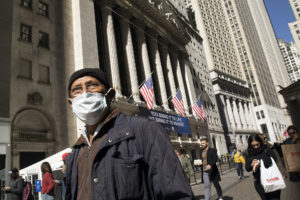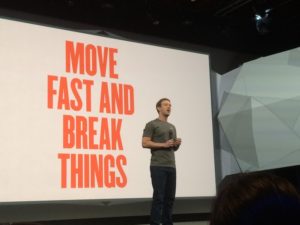Unions Aren’t the Problem
As Congress and the White House lurch toward possible approval of a loan package for the crippled auto industry, we are undoubtedly in store for more union-bashing.As Congress and the White House lurch toward possible approval of a loan package for the crippled auto industry, we are undoubtedly in store for more union-bashing. Note well that we did not hear any such tirades when vastly larger sums of taxpayer money — with fewer strings attached — were lavished upon the banks and financial industry wizards who created the credit crisis.
Put aside for a moment the misinformation and outright untruths that characterize conservative attacks on the autoworkers’ unions. No one should be allowed to cast blame on workers who want nothing more than to maintain a middle-class life.
Unions aren’t the problem. They are the solution.
Creating a viable middle class has been the goal of organized labor since labor first became organized. And it is this goal that was abandoned outright by American political and business leaders as they did all they could over the past three decades to encourage a relentless race to the bottom in wages and benefits.
Strip away the financial mumbo jumbo and the credit crisis comes down to this: For decades, as wages and benefits for working and middle-class people stagnated or fell, the only way for them to purchase the goods that make the economy hum was through credit. This was true whether the item purchased was a home, a car — or all the unnecessary gizmos that retailers have been more than happy to tell consumers were the must-haves of the day. Until we understand that we are in the midst of two crises — one the short-term credit crisis and one the longer-term crisis in the failure to pay workers what they need to sustain themselves — we are doomed to repeat this horror.
“If you are a man with only a high school education … your chances of making a wage or salary as good as what your father was making in the late 1970s are not good,” says Gary Gerstle, a Vanderbilt University historian. “We are looking at a deterioration in their life opportunities and living standards, at the same time that an enormous amount of wealth has accumulated at the top of the income ladder.”
It is true that some individuals were reckless in taking on debt. But it is equally valid that American workers simply haven’t been paid what it takes for them to spend enough to keep the American economy growing. “The economy needed levels of expenditure and consumption that most Americans literally could not afford,” Gerstle says.
What do unions have to do with this? To start with, unionized workers make about $200 more per week than do nonunion workers, according to the Bureau of Labor Statistics. The great expansion of the American middle class and an unprecedented rise in living standards occurred between the end of World War II and the 1970s — when unions were far more common and powerful than they are today. Beginning in the 1980s, an ideology of deregulation and anti-unionism took hold, with free-market capitalists arguing that no intervention in the markets — including labor’s intervention — was ever beneficial.
“The promise of deregulation was that this would create so much energy and dynamism at the top that it would all trickle down,” Gerstle says. “Not only would people on Wall Street make all kinds of money, but people on Main Street would find that there would be more dynamism in their lives, more opportunity, more wages.”
Well, people on Wall Street did make all kinds of money. People on Main Street got depressed wages, the demise of guaranteed pensions and 401(k)s that crashed with the stock market. They got health insurance that is barely affordable, if they’ve got insurance at all.
We are engulfed by an economic morass that holds the prospect of being the deepest and broadest downturn of the post-World War II era. It is no coincidence that the percentage of private-sector workers in unions — about 7 percent — is roughly the same as what it was before the Great Depression. Historically, Gerstle says, social movements have needed direct and often unsettling action to capture the public’s imagination and take hold.
This is why we can only hope that events such as the unfolding peaceful occupation of a Chicago window factory by its newly laid-off workers is the start of something much, much bigger.
Marie Cocco’s e-mail address is mariecocco(at)washpost.com.
© 2008, Washington Post Writers Group
Your support matters…Independent journalism is under threat and overshadowed by heavily funded mainstream media.
You can help level the playing field. Become a member.
Your tax-deductible contribution keeps us digging beneath the headlines to give you thought-provoking, investigative reporting and analysis that unearths what's really happening- without compromise.
Give today to support our courageous, independent journalists.






You need to be a supporter to comment.
There are currently no responses to this article.
Be the first to respond.